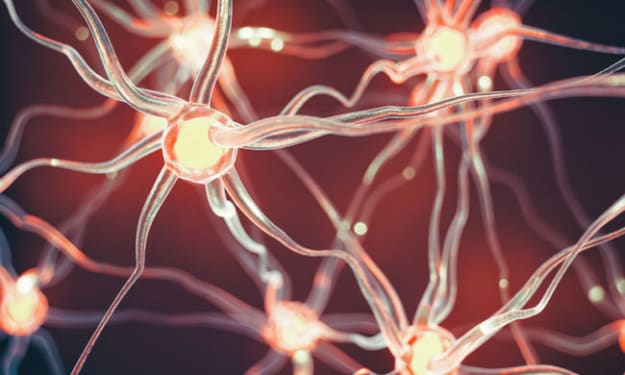Top 5 Nutrition Myths That Science Has Debunked
The Internet is bombarded with advice for a healthy diet and way of life. You must only purchase low-fat foods, attend gyms, run marathons, take vitamin complexes, miraculous detox treatments, and other such things. Every manufacturer seems to be investing in the idea of healthy living. It could get difficult to make sense of everything that is there.

The concept of avoiding chronic illnesses rather than treating them is now more economically sound given the rising cost of health care. A healthy diet indicates that healthy individuals consume balanced, proper meals. This expression is most frequently used in relation to preventing obesity. The problem of becoming overweight affects everyone. Although traditional dietetics did not work to manage obesity, it did lead to many myths.
Here are five healthy diet myths that have been debunked and that you should no longer believe.
1. A balanced diet is a one-fits-all solution
The concept of appropriate nutrition does not imply a specific approach for each individual. Everyone has their own genetics, way of life, regular routine, job, psycho-emotional experience, and dietary preferences.
Today, when laboratory diagnostic options are practically limitless, you can conduct a genetic study at a time. Such a test can disclose your risk of accumulating excess weight and associated disorders, dietary sensitivity to a variety of foods, and the sort of productive physical activity. With the help of a gastroenterologist, you can do tests to determine the state of your intestinal microbial ecosystem.
It's also critical to consider your hormonal balance, which undoubtedly influences how quickly or slowly metabolic processes inside your body occur. This implies that appropriate nutrition should be chosen by a professional because it differs for each individual.
2. The only way to lose weight is to reduce calories.
This is true in certain instances. You will start to lose weight if you lower your daily calorie intake by 300–500 kcal. But not all calories are created equal. Foods with the same number of calories but differing compositions cause various rates of metabolic activity. The glycemic index is a topic that you may frequently come upon. This refers to a product's potential to raise blood sugar levels by a specific amount.
For instance, you may have an apple or apple juice (without added sugar). Although the product has the same number of calories, the amount of blood glucose it will raise and the rate at which it will do so will change depending on the product. A whole apple contains indigestible soluble fibers that slow down the rapid absorption of fructose, a simple sugar, into the blood from the intestines. Since the juice lacks fiber, fructose enters the body rapidly, and you must manage such a high sugar intake. Additionally, this sugar makes fat cells bigger and raises "bad" cholesterol levels.
The food's ability to raise blood sugar can also be influenced by additional factors, such as:
- The type of sugar
- The degree of grinding
- The type of cooking
Additionally, you should be aware that eating protein-rich foods can raise blood insulin levels without affecting blood sugar levels. This indicates that consuming a lot of protein-rich meals at once is not a smart idea, particularly if there isn't enough fiber present. The less processed a food is, the less damage it would do to your body.
3. The foundation of healthy eating is small, frequent meals
If you do not have a tendency to gain weight, you should eat in response to a sensation of hunger rather than an appetite. While appetite is more of an emotion, hunger is a physiological phenomenon. Excessive eating is not advantageous for someone who is predisposed to obesity. Any meal or drink consumed causes the body to create insulin, which is used to pass blood glucose through the cell membrane and into the cell.
In most cases, the insulin generated is only sufficient to transport the acquired glucose. Insulin secretion then diminishes as glucose fuels cellular chemical processes. If you adhere to the guidelines for regular meal consumption, you should eat around every three hours. The resumption of insulin production results in a rise in the blood's insulin concentration. If this occurs frequently, you are predisposed to developing diabetes, because high-GI foods make cells less sensitive to insulin (insulin resistance). This is thought to be the root cause of type 2 diabetes.
You should be aware your meals ought to be determined by the feeling of hunger rather than appetite. Try to limit your daily eating to three times if you are prone to quickly gaining extra pounds or have a family history of diabetes. If you still feel the need for snacks, pick low-GI ones. Additionally, if you are addicted to sugary snacks and already have insulin resistance, which is a major reason to see a nutritionist.
4. Porridge is an ideal breakfast
Porridge undermines its own reputation in numerous ways. Cereals, milk, which includes lactose, a quick-digesting carbohydrate, and dried fruit added to porridge are all examples of carbs. According to the previously described method, oatmeal will needlessly increase insulin production, hence increasing the amount of time sugar is carried into cells. As a result, your blood glucose level will begin to fall below normal, and you will crave food again. This creates a vicious cycle of hyperinsulinemia. As a result, choose healthful protein meals for breakfast that are complemented by vegetables.
5. Limiting the consumption of animal fats is crucial
This advice may be useful for individuals who have high blood cholesterol. According to studies, greater sales and consumption of low-fat foods did not result in a drop in the number of people with high cholesterol. In response to the anti-fat trend, advocates for the ketogenic diet, a way of eating that focuses on high-quality fats of both plant and animal origin, have lately gained favor. The ketogenic diet is used to treat cancer and a variety of neurological diseases. It is also a prevalent component of anti-aging regimens.
You should be aware, however, that cholesterol is a source of sex hormones as well as some adrenal hormones, both of which are necessary for optimal physical functioning. The increase in "bad" cholesterol is associated with carbohydrate metabolism rather than fat metabolism.
You should keep in mind that your nutrition should be diverse and that animal fats do serve an important role. Animal fats, on the other hand, have certain limitations. They should not be oxidized since they will be converted to trans isoforms, which will accumulate in the body and are not removed. Moreover, because fat is a toxin accumulator, the product's ecological purity is crucial.
About the Creator
Amelia Grant
I am journalist, and blogger.






Comments
There are no comments for this story
Be the first to respond and start the conversation.